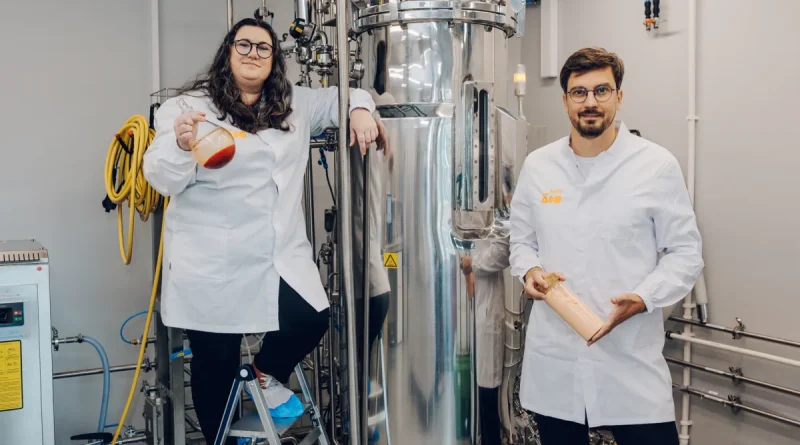ÄIO Develops Groundbreaking Process to Produce Edible Fat from Agricultural Waste, Including Sawdust, at Startup Battlefield
Äio (pronounced EYE-oh) symbolizes the Estonian deity of dreams. This name aligns seamlessly with a nascent startup called ÄIO, emerging from the small Baltic nation, which has developed a technique to transform agricultural waste, like sawdust, into valuable fats suited for the food and cosmetics industries.
This innovation has the potential to reduce global dependence on palm oil, a commonly used ingredient known for its emulsifying and preserving properties in food and cosmetics. The cultivation of palm, often in hot and humid climates, has led to extensive deforestation and the disruption of fragile ecosystems.
The co-founders of ÄIO, biotechnology specialists Nemailla Bonturi and Petri-Jaan Lahtvee, based their startup on Bonturi’s doctoral research. While conducting her studies, she engineered a new strain of yeast. Unlike traditional yeasts that predominantly produce carbon dioxide or alcohol in baking and brewing, this innovative strain converts sugar into fat molecules. ÄIO aims to unveil its technology at Startup Battlefield during this month’s TechCrunch Disrupt in San Francisco.
Lahtvee, a former professor of Food Technology and Bioengineering at Tallinn University of Technology in Estonia, brought Bonturi into his biotech lab in 2016, where she became his first hire. Together, they concentrated on enhancing the microbe’s resilience for effective manufacturing.
Given Estonia’s robust agricultural landscape, which includes corn, various grains, sugarcane, and timber, the lab focused on how sugars derived from agricultural waste could optimize this microbe. “We initiated our development utilizing metabolic engineering techniques,” Lahtvee shared with TechCrunch. The outcome was a successful transformation of those sugars.
Lahtvee highlighted that the fat profile of the microbe closely resembles existing fats and, when solidified, is strikingly similar to chicken fat. Additionally, the fermentation process can be tweaked to produce a liquid oil, providing a viable substitute for commercially available oils such as canola or rapeseed oil.
In 2022, recognizing the commercial possibilities of their innovation, the founders established ÄIO with the goal of attracting venture capital and establishing commercial collaborations for market entry. Thus far, they have raised around $7 million, developed precision fermentation techniques, received the 2024 Baltic Sustainability Award, and engaged over 100 international companies interested in partnerships, as stated by the startup.
TechCrunch event
San Francisco
|
October 27-29, 2025
“We perform extensive analyses after production, and our data suggests that our final product matches vegetable oils, but more critically, it is even purer, free from pesticides,” Bonturi commented to TechCrunch.
Looking ahead, the company plans to set up a mass production facility for the fat by 2027 and aim to license its technology to other producers in the food and cosmetic sectors. Furthermore, they’ll need to secure approvals for marketing the fats as food, starting with countries like Singapore, which is known for its progressive approach to alternative food production methods.
“Naturally, this represents an innovative method for food production, and we must navigate through all necessary permits and assessments,” Bonturi remarked.
As plans progress, Bonturi shares her aspiration to prove that “two scientists from a small nation can make a positive impact on the world, although that’s just my personal goal.”
If you’re interested in learning more about ÄIO and discovering a variety of other startups, participate in their presentations and hear from guest speakers across four stages during Disrupt from October 27 to 29 in San Francisco. Find out more here.




